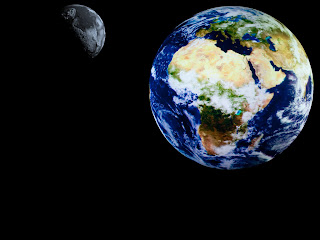You remember the boy standing in the alley looking up at his
friend in the second story window. She was telling him about the letter her
older sister had received in the morning’s mail. It had to be something very
important, because she had never seen a letter addressed quite like this. She
said it was addressed to her sister, with the house and street numbers, Harpers
Corners, Wayne County, New Hampshire, The Unite Sates of America, The Western
Hemisphere, Earth, The Solar System, The Milky Way, The Universe, The Mind of
God. And all the little boy in the alley could say was, “Well, whadya’ know,
whadya’ know.”
We have a great many addresses or ways to reference where we
live and who and what we are. As a matter of fact, we are probably on the list
of many mail order houses, charities, and mass mailing organizations. Sometimes
we can even identify the source of the request for gifts by whether or not they
spell our names correctly, include members of our family, or give some other
hints in the address that helps us know who is writing. What if every reference
to our identity would also add, “destined to live forever…” it would no doubt
gain many a critical glance, and possibly develop quite an opposition. It would
sound very sectarian and strident and announce perhaps more than others really
wanted to know about a person.
Remember the early church, whose boldness and passion for
the Christian gospel rested not so much on the “teaching” of Jesus as it relied
on the Easter reality of his resurrection. When Jesus rose from the dead it was
not to a world that rejoiced, but that at first was simply surprised, and then
offended and ultimately hostile that such an impossible thing could ever truly
happen. Yet at great cost the church kept the faith. Easter became the
celebration that defined human identity, it has made us feel at home with the
reality of life eternal and out of that message the world was not only granted
a new lease on life on earth but a new context so we could now experience with
holy abandon the fullness of God’s gracious intent for us all.
Pastor Jansen















